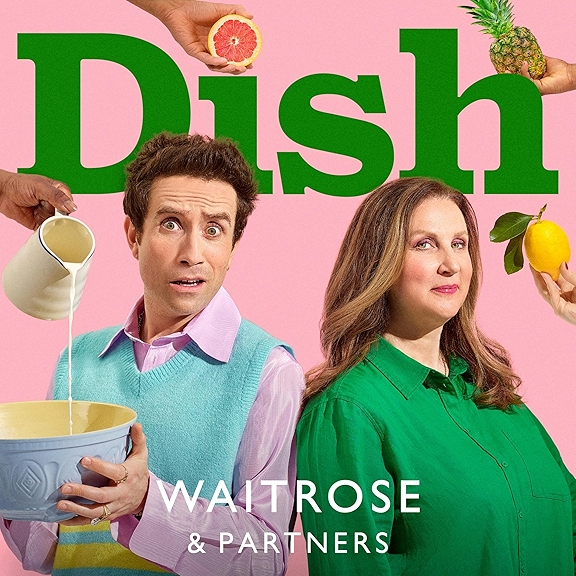
The third episode of the English mini-series on English wines explores Cornwall with Sam Lindo of Camel Valley Estate.
https://www.camelvalley.com/?msclkid=b4bf09daa60a11eca885d38a7ebd41e9
A brief history ex-RAF pilot Bob Lindo and his wife Annie planted their first eight thousand vines in 1989, they never dreamed of the phenomenal success they would achieve within 2 decades. They had bought their farm in the heart of the Cornish countryside several years earlier.
The second generation, Sam Lindo is now in charge of winemaking and continues to grow and develop the reputation of Camel Valley and our guests today.
With him, we discussed what is like growing vines in Cornwall Camel Valley Wines and the. We have paid particular attention to their still wines made from Bacchus the UK call for Sauvignon Blanc, with the First Single-Estate appellation Granted in the UK for a Bacchus.
With an excess of 1500 hours of sunshine each year, Cornwall is one of the sunniest areas within the UK, but as Sam explains only a few pockets of land can actually be planted with vines.
English wine is growing in popularity and is increasingly recognised as a premium wine-producing region, with more than 450 wineries and around 3.15m bottles produced a year.
The most popular grapes varieties grown in English vineyards are Chardonnay, Pinot Noir and Bacchus, as well as Pinot Meunier and Ortega.
Whilst vineyards are found across the whole of England, the climate of the South and South-East makes it a particularly popular region for growing vines, especially in Hampshire, Sussex and Kent and Cornwall.
The wine industry of Great Britain is now attracting considerable investment and boasts many wineries with state-of-the-art facilities.
The nature of the wine business in the UK varies. Some vineyards have bypassed the challenge to produce their own wines and concentrate on growing grapes to sell on to other, mainly larger concerns. Some owners have leased their vineyards to other wine producers, thus reducing the overall number of players in the market.
2003 was a turning point year for English wines with the warmest year to date and amazing crops, for many producers it was the year that they decided to step uo their operations.
Rember to hit the follow the podcast and as always if you have found listening to this podcast valuable, leave a review!
We would love you hear from you! Reach us on:
Instagram lookingintowine
Twitter Mattia Scarpazza
Mail Info@mattiascarpazza.com
https://www.camelvalley.com/?msclkid=b4bf09daa60a11eca885d38a7ebd41e9
A brief history ex-RAF pilot Bob Lindo and his wife Annie planted their first eight thousand vines in 1989, they never dreamed of the phenomenal success they would achieve within 2 decades. They had bought their farm in the heart of the Cornish countryside several years earlier.
The second generation, Sam Lindo is now in charge of winemaking and continues to grow and develop the reputation of Camel Valley and our guests today.
With him, we discussed what is like growing vines in Cornwall Camel Valley Wines and the. We have paid particular attention to their still wines made from Bacchus the UK call for Sauvignon Blanc, with the First Single-Estate appellation Granted in the UK for a Bacchus.
With an excess of 1500 hours of sunshine each year, Cornwall is one of the sunniest areas within the UK, but as Sam explains only a few pockets of land can actually be planted with vines.
English wine is growing in popularity and is increasingly recognised as a premium wine-producing region, with more than 450 wineries and around 3.15m bottles produced a year.
The most popular grapes varieties grown in English vineyards are Chardonnay, Pinot Noir and Bacchus, as well as Pinot Meunier and Ortega.
Whilst vineyards are found across the whole of England, the climate of the South and South-East makes it a particularly popular region for growing vines, especially in Hampshire, Sussex and Kent and Cornwall.
The wine industry of Great Britain is now attracting considerable investment and boasts many wineries with state-of-the-art facilities.
The nature of the wine business in the UK varies. Some vineyards have bypassed the challenge to produce their own wines and concentrate on growing grapes to sell on to other, mainly larger concerns. Some owners have leased their vineyards to other wine producers, thus reducing the overall number of players in the market.
2003 was a turning point year for English wines with the warmest year to date and amazing crops, for many producers it was the year that they decided to step uo their operations.
Rember to hit the follow the podcast and as always if you have found listening to this podcast valuable, leave a review!
We would love you hear from you! Reach us on:
Instagram lookingintowine
Twitter Mattia Scarpazza
Mail Info@mattiascarpazza.com




















